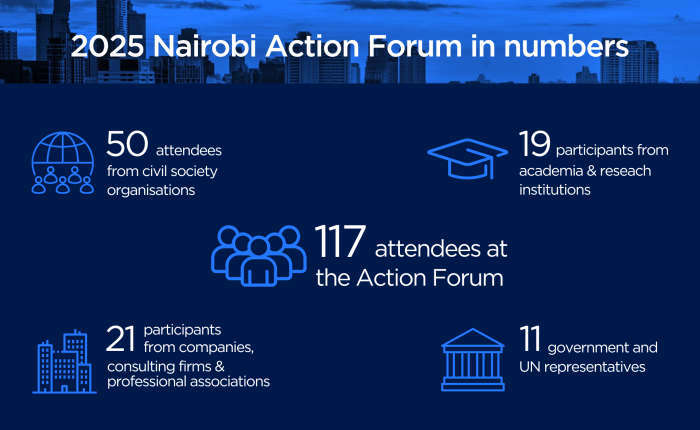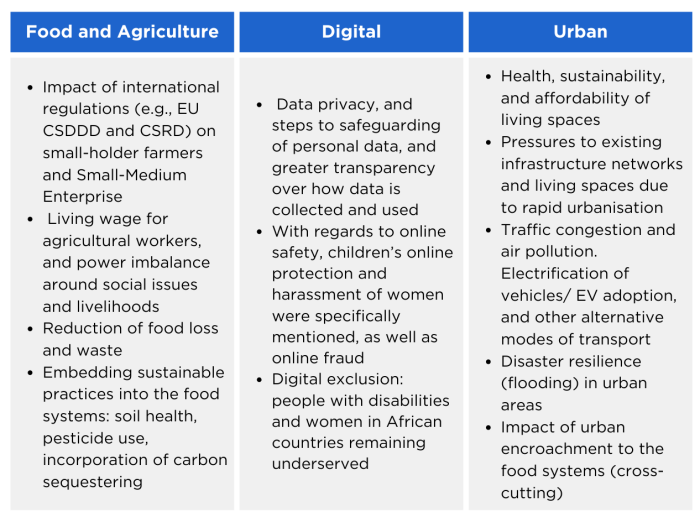Insights and highlights: 2025 Nairobi Action Forum

In June 2025, the World Benchmarking Alliance brought its annual Action Forum to Nairobi – a deliberate choice to place local perspectives at the heart of global sustainability conversations. Leaders from Kenya’s digital, food and agriculture, and urban development sectors gathered with policymakers, civil society, and development partners for a day of open dialogue.
The aim was simple yet ambitious: listen deeply, understand local priorities, and explore how businesses can be more accountable in shaping a sustainable future.

Key takeaways
- Across the sessions, a clear picture emerged. Kenya’s businesses – whether homegrown or part of global supply chains – are stepping up on environmental, social, and governance issues. Regulatory frameworks, such as those from the Capital Markets Authority, are driving improved corporate reporting and transparency. International standards like GRI and ISSB are finding their place in local practice. Yet participants cautioned that the path to progress is uneven. Small-scale producers, for example, often bear the brunt of new international rules introduced without consultation.
- The conversation returned often to accountability. Benchmarks, including those from WBA, are helping measure and inspire change, but participants called for more inclusive standard-setting. Rules, they argued, must be shaped with the voices of those most affected: farmers, small business owners, and community advocates; not imposed from a distance. This need for contextualisation was echoed in the urban development discussions, where global building standards were recognised as valuable, but often mismatched with the realities of Kenya’s housing stock and governance capacity.
- In the digital sphere, concerns focused on data privacy, online safety, and persistent inequalities in access. Women, people with disabilities, and rural communities remain underserved, even as infrastructure improves. The call was for technology companies to take greater responsibility in safeguarding rights and in ensuring the benefits of digital transformation are shared equitably.
- Underlying these sector-specific issues was a broader truth: trust is fragile. Civil society organisations enjoy relatively higher trust, yet scepticism toward companies, media, and government runs deep. Addressing this requires transparent action (not just words), and data that tells a human story, presented in ways that communities can use for advocacy.
